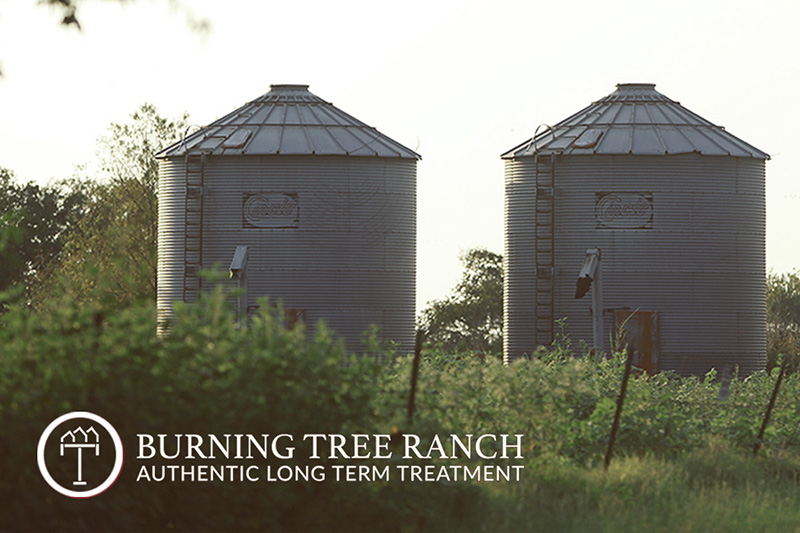Major Depressive Disorder & Substance Abuse in a Dual Diagnosis
The relationship between Major Depressive Disorder and substance abuse is complex and multifaceted, demanding an integrated approach to treatment. Recognizing the common substances abused by those with depression is crucial for providing comprehensive care.
Major Depressive Disorder: Insights from the DSM-5
The Diagnostic and Statistical Manual of Mental Disorders, Fifth Edition (DSM-5), classifies Major Depressive Disorder (MDD) as a significant mood disorder characterized by a constellation of depressive symptoms that significantly impact an individual’s daily life and functioning. Here are the key features and essential facts according to the DSM-5 classification:

Key Features of Major Depressive Disorder
- Depressive Episodes: The hallmark of MDD is the presence of one or more major depressive episodes, which are periods characterized by a depressed mood or a loss of interest or pleasure in almost all activities for a minimum of two weeks.
- Symptoms: To be diagnosed with MDD, individuals must exhibit at least five of the following symptoms during the same two-week period, and at least one of the symptoms should be either (1) depressed mood or (2) loss of interest or pleasure:
- Depressed mood most of the day, nearly every day.
- Markedly diminished interest or pleasure in all, or almost all, activities most of the day, practically every day.
- Significant weight loss when not dieting, weight gain, or decrease or increase in appetite.
Insomnia or hypersomnia nearly every day.
Psychomotor agitation or retardation nearly every day. - Fatigue or loss of energy almost every day.
Feelings of worthlessness or excessive or inappropriate guilt nearly every day.
Diminished ability to think or concentrate, or indecisiveness, nearly every day.
Recurrent thoughts of death, recurrent suicidal ideation without a specific plan, or a suicide attempt or a specific plan for committing suicide.
- Impact on Functioning: The symptoms cause clinically significant distress or impairment in social, occupational, or other important areas of functioning.
- Exclusion Criteria: The episode is not attributable to the physiological effects of a substance or another medical condition. Also, the occurrence of the major depressive episode is not better explained by schizoaffective disorder, schizophrenia, schizophreniform disorder, delusional disorder, or other specified and unspecified schizophrenia spectrum and other psychotic disorders.

Important Facts: What You Should Know About MDD
The DSM-5’s classification of Major Depressive Disorder provides a clear framework for identifying and treating this complex disorder, emphasizing the need for a comprehensive approach to care.
- Prevalence: MDD affects millions worldwide, making it one of the leading causes of disability.
- Comorbidity: It often co-occurs with other mental health disorders, such as anxiety disorders, substance use disorders, and eating disorders, complicating the treatment approach.
- Suicide Risk: Individuals with MDD are at an increased risk for suicide, making it imperative to assess suicidality during diagnosis and treatment continually.
- Treatment: A combination of psychotherapy, medication (typically SSRIs or SNRIs), and lifestyle modifications is often effective in managing symptoms and improving quality of life.
The Interplay of Major Depressive Disorder and Substance Abuse
Persons with Major Depressive Disorder (MDD) are at an increased risk of substance abuse, often as a means of self-medication to alleviate symptoms of their depression. Here are some of the most commonly abused substances by individuals with MDD, along with relevant facts and statistics:
Alcohol
One of the most frequently abused substances among those with MDD. Alcohol can temporarily relieve feelings of sadness or loneliness but ultimately exacerbates symptoms of depression. Studies suggest that about 30% to 40% of individuals with alcohol dependence have also experienced a major depressive episode.
Cannabis
Individuals with MDD may use cannabis for its mood-lifting effects. However, regular use can lead to an increase in depressive symptoms over time. Research indicates a bidirectional relationship between cannabis use and depression, suggesting that those with depression may use cannabis as a coping mechanism, which in turn may increase the risk of developing a more severe depressive disorder.
Prescription Medications
This includes opioids, benzodiazepines, and prescription stimulants. People with MDD might misuse these medications to manage pain and anxiety or to achieve a euphoric state. Misuse of prescription medications can lead to addiction, worsening depression, and other health complications.
Nicotine
Smoking is disproportionately higher among people with depressive disorders. Nicotine has a temporary mood-enhancing effect, leading individuals with depression to use tobacco as a form of self-medication. However, nicotine dependence can complicate and worsen the long-term course of depression.
Illicit Drugs
This includes substances like cocaine and ecstasy (MDMA). Individuals might use these drugs for their intense but short-lived euphoric effects. Such substances can significantly worsen depressive symptoms in the long run and lead to a cycle of dependence and exacerbated mental health issues.
Helpful Information in Relation to Substance Abuse
Comorbidity: The co-occurrence of substance abuse and MDD complicates diagnosis and treatment. It’s crucial for treatment plans to address both disorders simultaneously for adequate recovery.
Treatment Considerations: Integrated treatment programs that include a combination of medication, therapy (such as Cognitive Behavioral Therapy), and support groups are effective in treating co-occurring depression and substance abuse.
Prevalence: The National Institute of Mental Health (NIMH) and other health organizations provide resources and statistics highlighting the link between substance abuse and depression, emphasizing the need for awareness and comprehensive care approaches.
Understanding the commonality of substance abuse among those with Major Depressive Disorder is vital in recognizing the need for dual-diagnosis treatment options that can effectively address both conditions.
Crisis Support Networks: Where to Turn When Concerned for a Loved One
If you’re concerned about someone’s safety due to mental health issues like depression or suicidal thoughts, taking immediate action is crucial. Here are steps you can take and resources available for assistance:
Stay with the Person: Do not leave them alone if you believe they are in immediate danger.
Listen Without Judgement: Provide an open and supportive environment where they feel safe to express their feelings.
Contacting emergency services is the most critical step if someone is in immediate danger. For ongoing support, utilizing hotlines, professional help, and supportive communities can make a significant difference in someone’s life.
Emergency Contacts:
- Emergency Services: In an immediate crisis, call 911 (in the U.S.) or your country’s emergency services number.
- National Suicide Prevention Lifeline (U.S.): Call 1-800-273-TALK (1-800-273-8255) for 24/7, accessible, and confidential support for people in distress. Online chat is also available at https://www.suicidepreventionlifeline.org/
- Crisis Text Line (U.S.): Text HOME to 741741 to connect with a Crisis Counselor for free, 24/7 crisis support via text message. More information is available at https://www.crisistextline.org/
Professional Help:
- Find a Mental Health Professional: Contact a psychologist, psychiatrist, or counselor. Websites like https://www.psychologytoday.com/ offer directories to find therapists based on location and specialty.
- Consult a Primary Care Physician: They can provide referrals to mental health specialists and help address any immediate health concerns.
Online and International Resources:
- Befrienders Worldwide: Offers a directory of emotional support helplines worldwide. Visit http://www.befrienders.org/ to find help in your country.
- The International Association for Suicide Prevention (IASP): Provides a global directory of resources and crisis centers. Visit their website at https://www.iasp.info/resources/Crisis_Centres/
Mobile Apps and Online Tools:
- MY3: An app designed to help individuals stay safe when feeling suicidal by defining a support system and creating a safety plan. Available on iOS and Android.
- TalkLife: A peer support platform where individuals can discuss their feelings and support others. Available on iOS and Android.

Addressing Depressive Symptoms & Substance Abuse
Final Words for Families Considering Long-Term Treatment
The relationship between Major Depressive Disorder and substance abuse is complex and multifaceted, demanding an integrated approach to treatment. Recognizing the common substances abused by those with depression is crucial for providing comprehensive care.
Effective management involves addressing both the depressive symptoms and the substance use disorder concurrently, highlighting the importance of dual diagnosis programs. By fostering a deeper understanding of this interplay, we can enhance treatment outcomes and support recovery for those affected.

